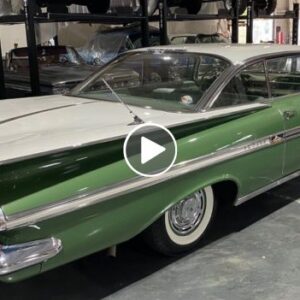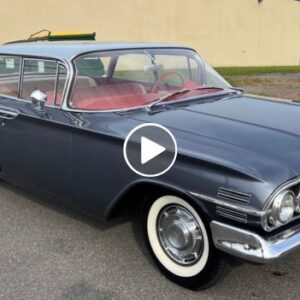Ludwig van Beethoven and Wolfgang Amadeus Mozart were two of the most celebrated composers of the Western art music tradition. Both composers were highly prolific, and each left a lasting legacy. Beethoven was particularly influential in the development of the Romantic style, while Mozart’s work bridged the gap between the Classical and Romantic eras. Both composers were also highly skilled teachers. Beethoven taught a number of pupils, including the Archduke Rudolph of Austria and Ferdinand Ries. Mozart, meanwhile, tutored a number of students, including his sister Nannerl and the Austrian composer Franz Joseph Haydn. It is clear that both Beethoven and Mozart made a significant contribution to the world of music. They were both highly talented composers who had a lasting impact on the development of Western music.
Students are introduced to Mozart and Beethoven by listening to music composed by them and reading brief biographies of them. Here are a few resources on the topic of biographies. Downloads of music by each composer can be found on the Classical Music Pages. Students can make their own document headline by inserting the word TOPIC at the top of the page into the text that refers to Mozart and Beethoven. Students are given the opportunity to read Mozart’s and Beethoven’s biographies. Following that, they are asked to write down two facts about each composer as a thank you. They can either save their documents to a disk or print them out as soon as they finish.
When Beethoven was a child, he was determined to study alongside Mozart. Beethoven, as a teenager, went to Vienna to meet and study with Mozart in 1787. Beethoven’s mother, who had been ill before he arrived, also fell ill after he arrived in Bonn, Germany, forcing him to return home.
Mozart’s parents introduced Mozart to the Classical era when he was a child in 1756. His father, Leopold Mozart, a composer and violinist, taught Mozart how to play piano, violin, and compose as a child. Wolfgang’s talent was obvious as soon as he began to compose his own music at the age of five.
Who Was The Mentor Of Mozart?
Mozart’s father, Leopold, was his first and most important mentor. Leopold was a renowned composer, violinist, and conductor, and he provided his son with an exceptionally high level of musical training. From a young age, Mozart showed great promise as a composer, and his father helped him to develop his skills. Mozart also had several other influential mentors, including the composer Johann Christian Bach and the singer Franziska von Jacquin. These mentors helped Mozart to refine his compositional style and technique.
Mozart’s legacy, on the other hand, extends well beyond his music. He was not only a social critic, but he also wrote and analyzed essays and letters, which shed light on the culture of his time. His talent for creating works of art was also evident in his architecture and sculpture. As a result, on Mozart Day, we pay tribute to the genius of Mozart and his influence on the music and culture of the world. You should not only express your appreciation for his passion and creativity, but also take pleasure in the works he has created that he so masterfully executed.
Who Was A Mentor To Beethoven?
Beethoven is said to have met Mozart and accepted him as his mentor. Mozart must have been both a muse and a mentor, because he had been friends with and been a mentor to Joseph Haydn, one of Mozart’s great friends.
Haydn’s father was a farmer who lived in a small village near Hungary’s border in northwest Austria in 1732. Haydn was given a better education when he was six years old after being placed in foster care. Haydn worked as a composer, conductor, and musical instructor during his lifetime, in addition to his service to his family. Mozart was born Wolfgang Amadeus Mozart in 1751. Mozart is a well-known classical musician and one of the most influential. His music helped cement standard musical forms, as well as solidify the Classical style. Haydn was Mozart’s mentor and friend, as well as Beethoven’s teacher, and he had a large influence on so many people.
When Beethoven left Vienna for New York City in 1785 to pursue his studies with Neefe, he became Haydn’s most important student. Haydn was sufficiently impressed to suggest that Beethoven continue his studies in Vienna, and Beethoven agreed. When Beethoven arrived in Vienna in 1792, he began working with Haydn as well as several other teachers, including Johann Baptist Schenk, Emanuel Aloys F*rster, Anton Salieri, and Johann Georg Albrechtsberger.
Christian Gottlob Neefe was Beethoven’s most important teacher during his studies in Bonn, and he was his first teacher in Berlin. Beethoven wrote a set of keyboard variations (WoO 63) for his first published work in March 1783, which Neefe taught him.
Did Beethoven Teach Other Musicians?
Among his other students from 1801 to 1805, he was a tutor to Ferdinand Ries, who eventually became a composer and wrote about their interactions. Carl Czerny began studying with Beethoven in 1801, a period in which he also became a well-known music teacher.
Who Was Beethoven Trained By?
Gottlob Neefe was Beethoven’s first full-time teacher. In addition to being a composer and musician, he was a court organist for eight years beginning in 1781. Soon after being introduced to Beethoven’s prodigious talent, he secured him a position as assistant court organist.
Who Influenced Beethoven The Most?
Beethoven was raised on Carl Philipp Emanuel Bach, the chief exponent of “expressive” music of the late 18th century at a time when music was regarded as the art of pleasing sounds, as are all pianists of the late 18th century.
Throughout his lifetime, Ludwig van Beethoven’s life was defined by triumph and tragedy. The composer of the symphony changed the symphony forever, and string quartets have been completely reinvented as a result. The Classic FM program examines the composer’s influence on succeeding generations. How did man invent? It is possible that music will be perceived as an object to be viewed solely as a soundtrack to an imagined life. The truth is that music is a real thing, and myths are not. The fact that life exists in Beethven’s music is not lost on anyone.
Beethoven was a significant influence on many of the 19th century’s greatest composers. To him, composers are not simply adding to tradition, but rather creating a new image for it. A history of twentieth-century music can be summed up in one sentence: Beethoven’s door was the source of many scandals and spats between composers and performers.
Haydn had the greatest influence on Beethoven of all time. Haydn and Mozart collaborated on a number of pieces for Haydn’s concerts, including the Violin Sonata, Fidelio Overture, and Hammerklavier Sonata, as well as works for the Fidelio Overture and Violin Haydn taught Beethoven how to develop his own style of music, which Beethoven took to heart. Beethoven was also influenced by Mozart and Joseph Haydn’s own son, Joseph II, who wrote works for other composers. Throughout Beethoven’s later works, other composers, such as Mozart, Haydn, and Beethoven’s friend and fellow composer, Ludwig van Beethoven, contribute to the composer’s influence. Nonetheless, each new work allows him to develop a distinct style that becomes more pronounced as it progresses. Beethoven’s relationship with Haydn is a fascinating one, one that had a significant impact on his development as a composer. Haydn’s influence on Mozart and Beethoven’s own son, Joseph II, is evident in Beethoven’s later works, as are the influence of other composers, including Mozart.
Who Is The Most Influential Composer Of All Time?
Beethoven, who died in 1770, was born Ludwig van Beethoven. Beethoven, a German composer and pianist, is regarded as the greatest living composer.
The Greatest Musical Genius Of All Time: Mozart
Mozart’s compositions are widely regarded as some of the most beautiful and intricate works of music, with intricate melodies and stunning orchestral arrangements. His operas, such as The Marriage of Figaro and Don Giovanni, are some of the most well-known and popular works in theater history.
Mozart’s influence on classical and popular music is still felt today in both forms. His music has been used in commercials and music videos, and his songs have been adapted for use in films and television shows.
A remarkable man, Mozart created some of the most beautiful and inspiring music ever composed. He is regarded as one of the greatest musical talents of all time.
What Composers Did Beethoven Admire?
According to the “Beethoven Compendium,” which is a scholarly book that describes Beethoven’s life and important aspects such as composition style, artistic influences, social life, eating habits, hygiene, and so on, Beethoven was deeply influenced by Mozart, J.S. Bach, Haydn,
Beethoven’s Revolutionary Works
Beethoven’s music is unique, which is true. The late period works he created were formal, harmonic, and structural in nature, with references to contrapuntal tendencies and microscopic textures frequently found. His music was also associated with transcendental notions such as revolution and struggle. Despite the fact that other composers may have explored similar themes, Beethoven’s work stands out for its revolutionary context.
Did Beethoven And Mozart Ever Meet
Beethoven and Mozart met for the first time, according to the short story. In one of the most famous accounts, Beethoven left his Bonn Court Orchestra on leave to meet Mozart in Vienna. Beethoven was sixteen years old when Mozart was thirty, and Mozart was thirty-four when Beethoven was sixteen years old.
Beethoven visited Vienna for the first time in 1787, which is a fact. Mozart was not in Vienna all year because he stayed in Prague during the first part of the year. The two could easily have met in Vienna in the middle of their overlapping time. Beethoven was listening to Mozart’s music, but it is unlikely that the two Masters ever met in person or held a formal meeting, but only briefly. Beethoven had already had a student living with him in his house, 9-year-old Johann Nepomuk Hummel, and he was preparing for the premiere of Don Giovanni.
Beethoven is known to have based his first symphony on Mozart’s piano sonata, and the composer has a deep respect for Mozart. Beethoven’s own works, as well as Mozart’s own compositions, testify to his influence.
Despite his tragic death at the age of 35, Mozart’s music will live on. In Beethoven’s words, if he could have written a single note like Mozart, he would not have written a single note.
Beethoven wrote piano pieces alone until 1826, when he died, the year in which he wrote the majority of his works. He was largely ignored and unnoticed in his lifetime, and his contributions to society were largely ignored. Despite this, his music has been rediscovered and hailed as one of the greatest ever written over the last 150 years.
Who Was More Talented: Mozart Or Beethoven?
Mozart is rightly regarded as one of the greatest composers of all time, while Beethoven is widely regarded as one of the greatest pianists. There is no doubt that both men possessed extraordinary talents, but it is difficult to choose between them. However, Beethoven was a far more inventive composer than most other composers, and his works are now frequently performed.
Mozart Vs Beethoven
Beethoven is more fiery, in contrast to Mozart. Mozart’s music is clean and precise, whereas Beethoven’s music is inventive and unexpected. He will build up the music as if it is about to blow up, only to find that it is soft – his trademark subito piano sound.
While Beethoven’s music was far superior to Mozart’s in my opinion, Mozart never wrote second drafts of his work. Beethoven’s genius and influence extend far beyond his own time, whereas Mozart’s is limited by his own shortcomings and influence. Beethoven’s music is superior to Mozart’s or Haydn’s because it has all of the structural perfection of Mozart’s or Haydn’s music, as well as fiery emotions that have a more direct impact. Beethoven was like a demigod who dominated his time, and many of the accomplishments of the era he dominated were overlooked. Mozart and Beethoven were both significant composers, but neither of them excelled at the task. beethoven developed the style, which Mozart mastered. In many ways, he borrowed ideas from Debussy and developed his own distinct style, becoming an influential composer who became well-known for his own distinctive voice.
Mozart would come out on top in a poker game. Mozart, on the other hand, tiddly winks easily, so I’d say a draw at chess. Mozart’s artistic journey from his early works to his later works was comparable to Beethoven’s. Both have mastered a wide range of genres, from music to art. The piano concertos Mozart wrote for opera are perhaps the most impressive string of orchestral works ever composed, and they are arguably his best work. In the poker ring, Mozart beats Beethoven, and in the boxing ring, Beethoven beats Mozart. Mozart did a lot of tiddly winks during chess, but he did not get a draw.
Mozart is an excellent guitarist, but arm wrestling and ludo are not my preferred sport. Haydn and those folding chairs…you have to watch him. Beethoven’s music is much more interesting than Mozart’s (which I don’t like, but his later works and a few of his latter pieces are worth listening to). The amount of talent in two extremely talented persons cannot be measured; therefore, the ability to compare genius levels cannot be determined. It is also terrible to call someone genius. In Mozart’s music, I hear a teenager having fun and being playful. Beethoven’s music is fantastic, but I cannot compare it to his. Despite how difficult Mozart‘s work is to grasp when writing, he rarely tries to do so in his works.
Beethoven spent the next four years studying Mozart’s scores, copying parts, and absorbing his master’s musical wisdom while visiting Mozart’s home and studio. His first four symphonies, the Grieutzer Sonata, the Fidelio, and the Kreutzer Sonata, were all composed during this time. Beethoven was back in Bonn in 1801 and Vienna again in 1807, but this time he was staying in Vienna. Despite Mozart’s declining health, he continued to visit the great composer‘s home, but their monthly meetings were cut short. Mozart’s death on December 5, 1791, occurred just days before his 34th birthday. Throughout Beethoven’s career, he has dedicated many of his later works to Mozart, in part because of his loss. Despite having 16 of the 300 most popular works published in his own hand, Mozart is still considered a strong contender, but he trails Ludwig van Beethoven by 20 of his works in the Top 300 and three of his works are ranked in the Top 10. Beethoven was 17 years old in 1787 when he left Bonn on a six-month leave of absence from the court orchestra and arrived in Vienna one month later. Mozart entered Mozart’s home and was greeted by his idol Max Franz in the music room after receiving a letter of introduction from Max Franz, who was acquainted with Mozart.
Why Mozart Is A More Difficult Composer To Follow Than Beethoven
Mozart is said to be easier to play than Beethoven, but this is not always the case. Mozart’s sonatas are easier to play than Beethoven’s, but his symphonies, sonates, concertos, and even variations, and even his variations, children’s pieces, and opera works are much more complex than you may be able to grasp. As a result, he can be difficult to follow, but it is an enriching experience to listen to his music.





